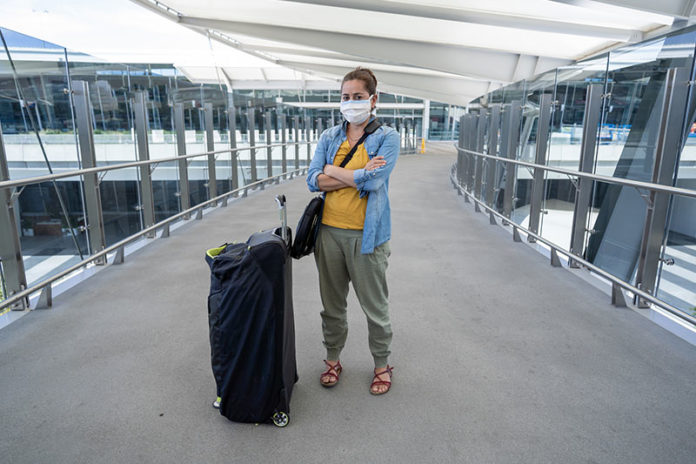For Chicagoans who need to go to Texas, there is bad news. You can do it, but anyone flying from Chicago to the Lone Star State will feel extremely unwelcome. Gov. Greg Abbott has ordered a 14-day self-quarantine for such travelers.
The mandate also applies to those arriving by air from California, New York, New Jersey, Connecticut, Atlanta, Detroit and Miami. People driving in from Louisiana — though not New Mexico or Oklahoma — have the same obligation.
This is a command, not a suggestion. Under Abbott’s executive order, state police “will conduct unannounced visits to designated quarantine locations to verify compliance.” Violations are a criminal offense, carrying up to six months in jail.
Not everything is bigger in Texas. Rhode Island began by ordering self-quarantines for anyone coming from New York, and when New Yorkers objected, Gov. Gina Raimondo decided to include all other states as well. Florida has ordered self-quarantines for visitors from New York, New Jersey, Connecticut and Louisiana.
I’m old enough to remember when any American could fly, drive, bike or walk from sea to shining sea without impediment. That was in February.
State borders are political lines, not physical barriers. The right to travel freely across them has always been recognized. But that freedom is being abridged in the name of fighting the new coronavirus.
It’s not a crazy idea. After all, plenty of people across America are under stay-at-home orders. Unnecessary travel of any kind is discouraged under both state and federal edicts.
States are free to restrict movement by their residents to prevent the spread of a deadly contagion.
But keeping people out of Rhode Island doesn’t prevent it from being transmitted from one person to another; it just diverts the infections to other states. The various state requirements fall most heavily on those coming from outside, not those moving about within. As such, the mandates not only raise serious constitutional problems but also defy commonsense.
The Supreme Court has recognized a basic though not unlimited freedom to go from one state to another without hindrance. As University of Chicago law professor Geoffrey Stone told me, “The framers understood that being a single nation means you have the right to travel throughout the nation.” That’s the difference between the border between North Dakota and South Dakota and the border between North Dakota and Saskatchewan.
It also means a state may not discriminate against residents of other states by putting burdens on them that it spares its own residents. Texas demands something of people coming from out of state on the possibility that they are infected, but not of roaming Texas residents who pose a similar risk.
The commonsense problems are particularly obvious in a state as big as Texas. Texarkana, in the northeast corner, is geographically closer to Chicago than it is to El Paso, on the far western edge. It’s hard to see why Texans are more at risk from the typical passenger arriving at Dallas/Fort Worth International Airport from Atlanta or Los Angeles than one who boarded in Houston or Laredo.
True, some of the designated places have a relatively high number of COVID-19 infections.
But the Chicago metropolitan area, which is home to 9.5 million people, has fewer than 6,000 confirmed cases — or about one for every 1,600 people. Not to mention that, as Stone notes, people who are infected are far less likely than others to travel in the first place.
This blanket approach “is using a sledgehammer instead of a surgical tool,” says Georgetown University law professor Lawrence Gostin. He argues that states are obligated to screen passengers individually. They could use temperature checks to find possible carriers of the virus, and they could question each passenger to gauge the potential risk.
They could also recommend that visitors isolate themselves, as Massachusetts does.
If a quick and reliable test were available, such screening would be far more precise. There is no question that a state could force a quarantine on anyone known to have the disease.
But forcing a quarantine on vast numbers of people who don’t have it to get the few who do — who, in most cases, could be persuaded to voluntarily sequester themselves — is an overreach.
At moments of national peril, it’s important for governors to recognize the importance of acting for the good of all Americans, not just their constituents. We are called the United States for a reason.































